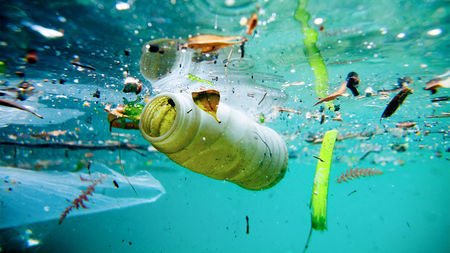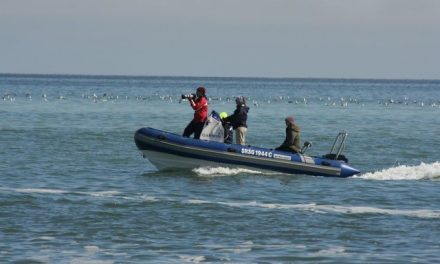
Namibia to take action on plastic pollution through Marine Ecosystem Programmes

Namibia will join the rest of the globe and celebrate World Oceans Day. World Oceans Day established in 1992 was officially designated by the United Nations in 2002 to be celebrated annually on 8 June.
Since then a culture was born. This year it will be commemorated under the theme “preventing plastic pollution and encouraging solutions for a healthy ocean” by the Division for Ocean Affairs and the Law of the Sea; to inform the public about the impacts of human activities on the ocean.
In Swakopmund, as part of the Sustainable Development Goals (SDGs) to transform the world, the third phase of the Benguela Current Large Marine and Ecosystem project (BCLME III) is being implemented covering three countries (i.e. Angola, Namibia and South Africa) under SDG goal 14 (Life Below Water).
The project is implemented under the Benguela Current Convention (BCC) in partnership with the United Nations Development Programme (UNDP) and co-financed by the Global Environment Facility.
The project aims to address environmental problems and promote sustainable management of the marine ecosystem. Further, it aims to realise a coordinated regional approach to the long-term conservation, protection, rehabilitation, enhancement and sustainable use of the Benguela Current Large Marine Ecosystem.
This will further provide economic, environmental and social benefits to safeguard the well-being of the people through the domestication and implementation of the BCC.
In conjunction with the theme of World Environment Day 2018 “Beat Plastic Pollution”, World Oceans Day is another opportunity – to protect and keep oceans clean and clear of plastic waste. World Oceans Day purposefully serves to bring to attention and remind governments, industries, institutions and individuals on the importance of conserving, protecting and identifying challenges with solutions for improved oceans governance.
According to UNDP, oceans are threatened by climate change, over-exploitation of marine resources, destruction of habitats and marine pollution, largely due to plastic pollution.
Every year, 8 million metric tons of plastic end up in our oceans. According to The United Nations Joint Group of Experts on the Scientific Aspects of Marine Pollution (GESAMP), it is estimated that land-based sources account for up to 80 percent of the world’s marine pollution, 60 to 95% of the waste being plastics debris.
Margretha Kampulu, Communications Consultant at the agency said individuals make up a strong team in improving marine ecosystem health.
According to her people can participate in beach clean-up initiatives, encourage the ban of plastic bags, discourage waste disposal at sea, and advocate for cleaner seas.
“Marine vessels are not an exception. They can practice environmental-friendly waste management practices such as waste recycling onboard the vessels; and encourage crew members to be waste cautious. Preventing plastic pollution and encouraging solutions for a healthy ocean,” she added.















































